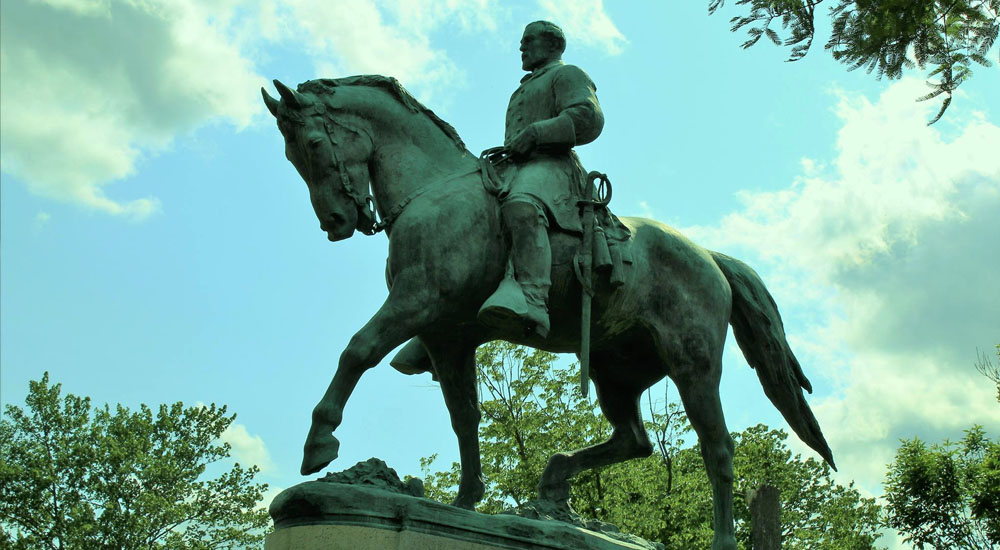Absent the fiscal cost of removing Confederate war memorials from the public square — calculated to be in the millions — we now have some appraisal numbers regarding the tax impact removing memorials would have on Richmond’s Monument Avenue. From the Washington Post:
Monument Avenue was the first street in the country to be declared a National Historic Landmark. It remains Richmond’s most prestigious address, with some of its most valuable real estate.
“They’re just beautiful sculptures, as far as I’m concerned,” Gallasch said. A real estate agent and former appraiser, Gallasch said he believes removing the monuments would knock 10 to 20 percent off property values in the area around the avenue — costing as much as $3 million a year in city tax revenue.
A recent survey by MassInc showed that 51 percent of Virginians support maintaining Confederate statues in public spaces, with 28 percent preferring removal. More than half say the statues are part of Southern heritage; only a quarter find them to be racist.
That’s $3 million sucked out of Richmond’s public education system, a system that is so dilapidated and underperforming that almost 150 positions remain unfilled as students start attending classes, according to one source.
What’s worse, with buildings falling apart and Richmond unwilling or unable to take the hard steps required to fix these facilities, the argument over Confederate memorials betrays a certain conceit among liberals: Tearing down statues is a great way for people to feel better about the heavy lift they are totally unwilling to perform.
Rev. Benjamin Campbell put this sentiment to words in an excellent op-ed in this weekend’s Richmond Times-Dispatch:
It is far easier even to remove the massive statues on Monument Avenue than it is to deal with the hidden artifacts of the Confederacy in metro Richmond. It may also be one more false victory.
Does removal of statues mean that more or less attention will be paid in the future to the major work that is undone? These are public monuments to the hidden artifacts that still hold our metropolitan city in bondage to the scandal of the Confederacy. The gravestones will be removed, but the buried bodies will continue to haunt us. The national media will shift their attention somewhere else. But the hidden, destructive divisions will remain.
Above all, the Capital of the Confederacy needs to become the Capital of Reconciliation.
Campbell goes over five distinct areas of institutional weakness where Richmond’s city fathers (and Virginia) have chosen to turn a blind eye and apply blame rather than address core needs and rectify past injustices, a sentiment picked up by the Wall Street Journal and seems to be coalescing among the thinkers and writers of America’s op-ed sections.
The real problem isn’t how folks feel about Confederate monuments and gravestones. The real problem that too many are unwilling to face is that economic opportunity and educational opportunities are being squandered by those too callous or short-sighted to care; too willing to consume resources while holding vast constituencies hostage to the past.
$3 million to Richmond City Public Schools seems like a good thing. It would be entirely shortsighted to rob Richmond’s future for the sake of a mob too unwilling to tackle the harder problems of education, opportunity, and workforce development.

